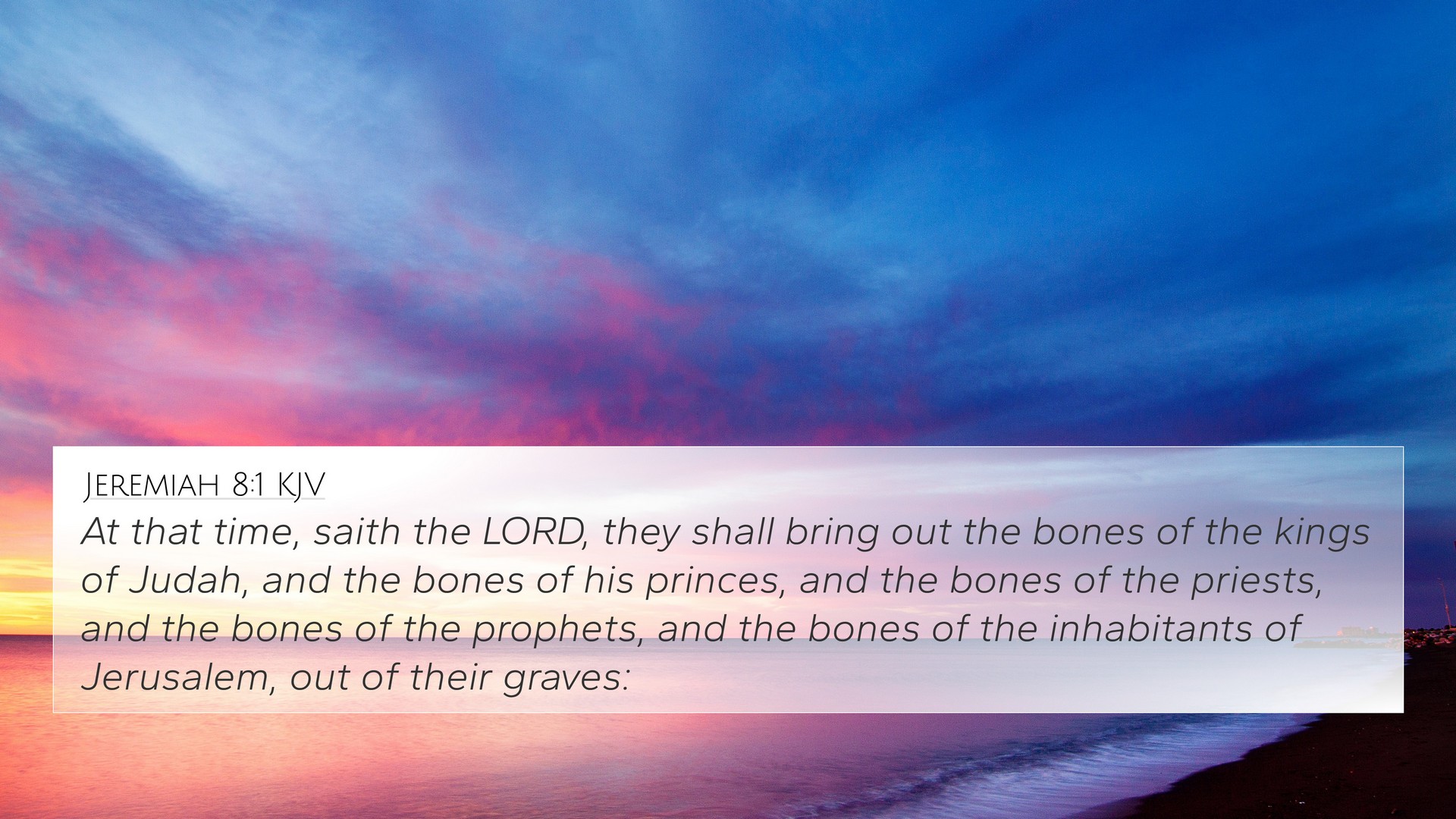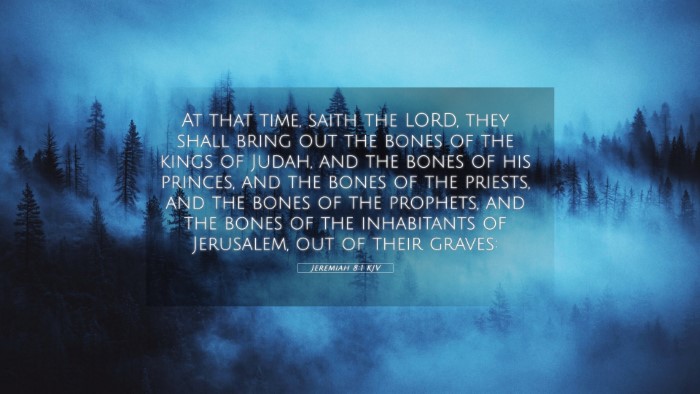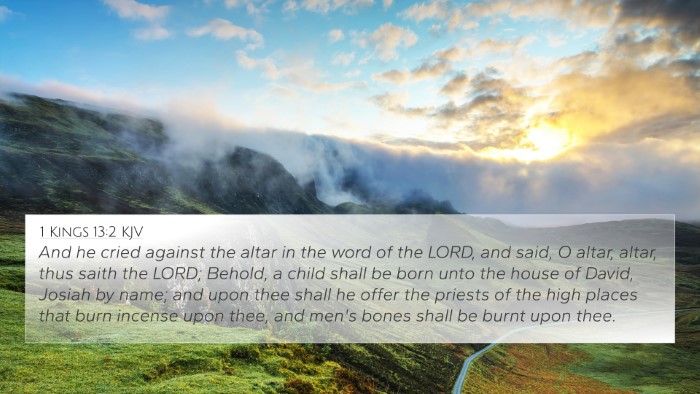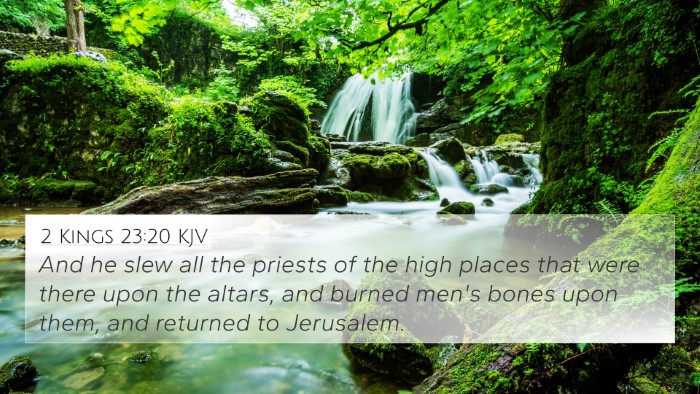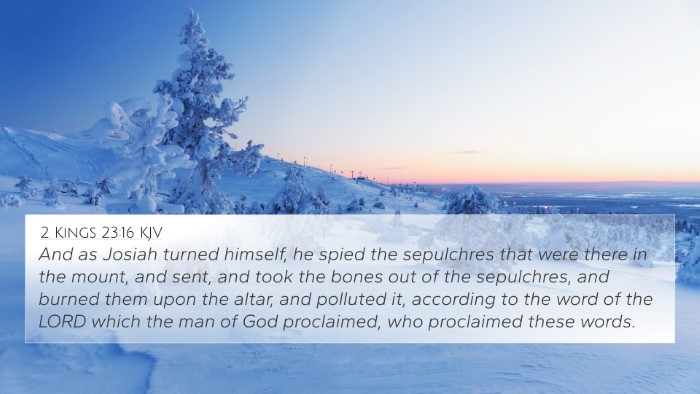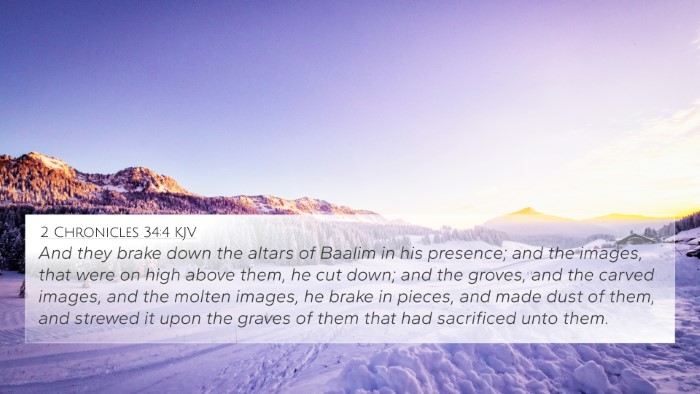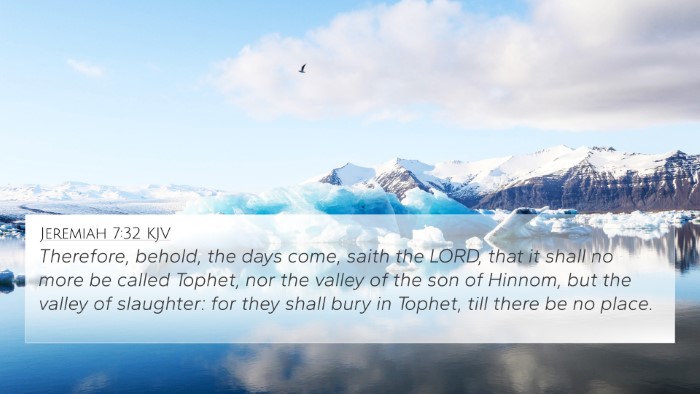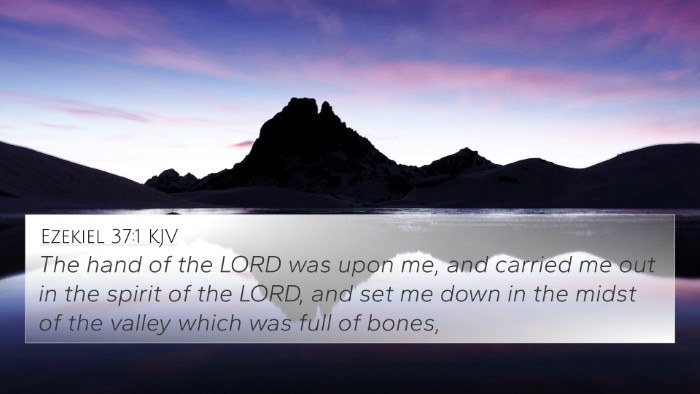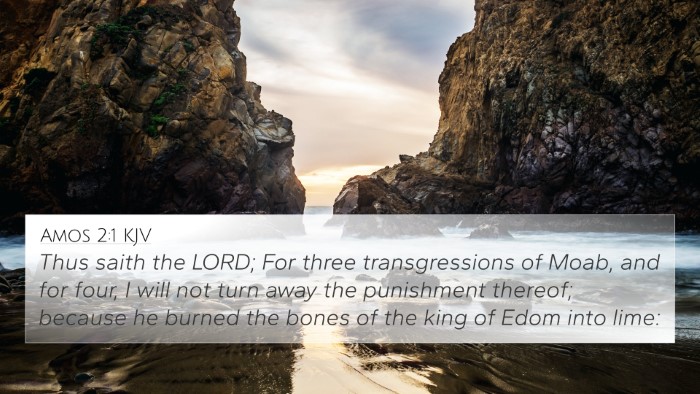Understanding Jeremiah 8:1
Verse: "At that time, says the LORD, they shall bring out the bones of the kings of Judah, and the bones of its princes, and the bones of the priests, and the bones of the prophets, and the bones of the inhabitants of Jerusalem, out of their graves."
Summary of Meaning
This verse from Jeremiah paints a vivid picture of destruction, loss, and the consequences of sin. In understanding its significance, we can draw insights from various public domain commentaries.
Commentary Insights
Matthew Henry's Commentary
Matthew Henry emphasizes that this passage signifies the ultimate humiliation and disgrace that would fall upon the people of Judah due to their rebellion against God. The act of bringing out the bones symbolizes a point of eternal disgrace, suggesting that the people of Judah, including their rulers and religious leaders, will face severe judgment. This speaks volumes about the spiritual state of society, which disregards God’s laws and faces dire consequences.
Albert Barnes' Notes
Albert Barnes remarks that retrieving the bones from graves indicates a comprehensive judgment against all levels of society. It symbolizes the end of their legacy and the futility of their earthly power. The act represents God's judgment against those who have led the nation into sin. It's a strong reminder of mortality and the spiritual state of the people as God seeks to cleanse His land from unrighteousness.
Adam Clarke's Commentary
Adam Clarke highlights the grotesqueness of this scene, portraying it as a metaphor for what happens when a nation turns away from God. He notes that it illustrates the prophetic nature of Jeremiah's message, emphasizing the consequences of idolatry and wickedness. The imagery serves as a warning about spiritual decay and the importance of repentance for restoration.
Cross-References
Jeremiah 8:1 connects with several other passages that enhance its meaning:
- Jeremiah 7:32-34: A reiteration of the desolation that will come upon Judah.
- Isaiah 26:14: A proclamation about the fallen leaders of Judah who will not rise again.
- Ezra 9:7: A reminder of the sins of the forefathers that have led to the current state of the nation.
- Jeremiah 22:19: A reflection on the end of King Jehoiakim, symbolizing judgment upon the kingdom.
- Revelation 20:14: An allusion to death and Hades being cast into the lake of fire, representing the end of the wicked.
- Deuteronomy 28:26: The curse upon those who disobey God's commands and the image of carcasses as a sign of disgrace.
- Ezekiel 39:12: A future prophecy concerning the burying of the dead as a sign of God’s ultimate judgment against sin.
Thematic Connections
This verse calls for an understanding of God's judgment, the consequences of sin, and the importance of societal morality in faithfulness to God. The themes of loss and accountability resonate throughout Scripture, where God's wrath against sin is a consistent narrative.
Cross-Referencing Biblical Texts
In studying Jeremiah 8:1, one can employ various tools for Bible cross-referencing. A well-organized Bible concordance or Bible cross-reference guide can help you discover additional verses that illustrate similar themes of judgment and divine response to rebellion. Engaging in cross-reference Bible study allows for a more profound understanding of God's attributes and the narrative arc of His interaction with humanity.
Conclusion
Understanding Jeremiah 8:1 requires a contemplative look at the context and the severe consequences depicted. Through the insights gathered from notable commentaries and cross-references, it's evident that this verse serves as a cautionary tale about the repercussions of abandoning God's ways. The connections between different Bible verses enhance our grasp of this pivotal moment in Israel's history and resonate with contemporary themes of repentance and spiritual vigilance.
